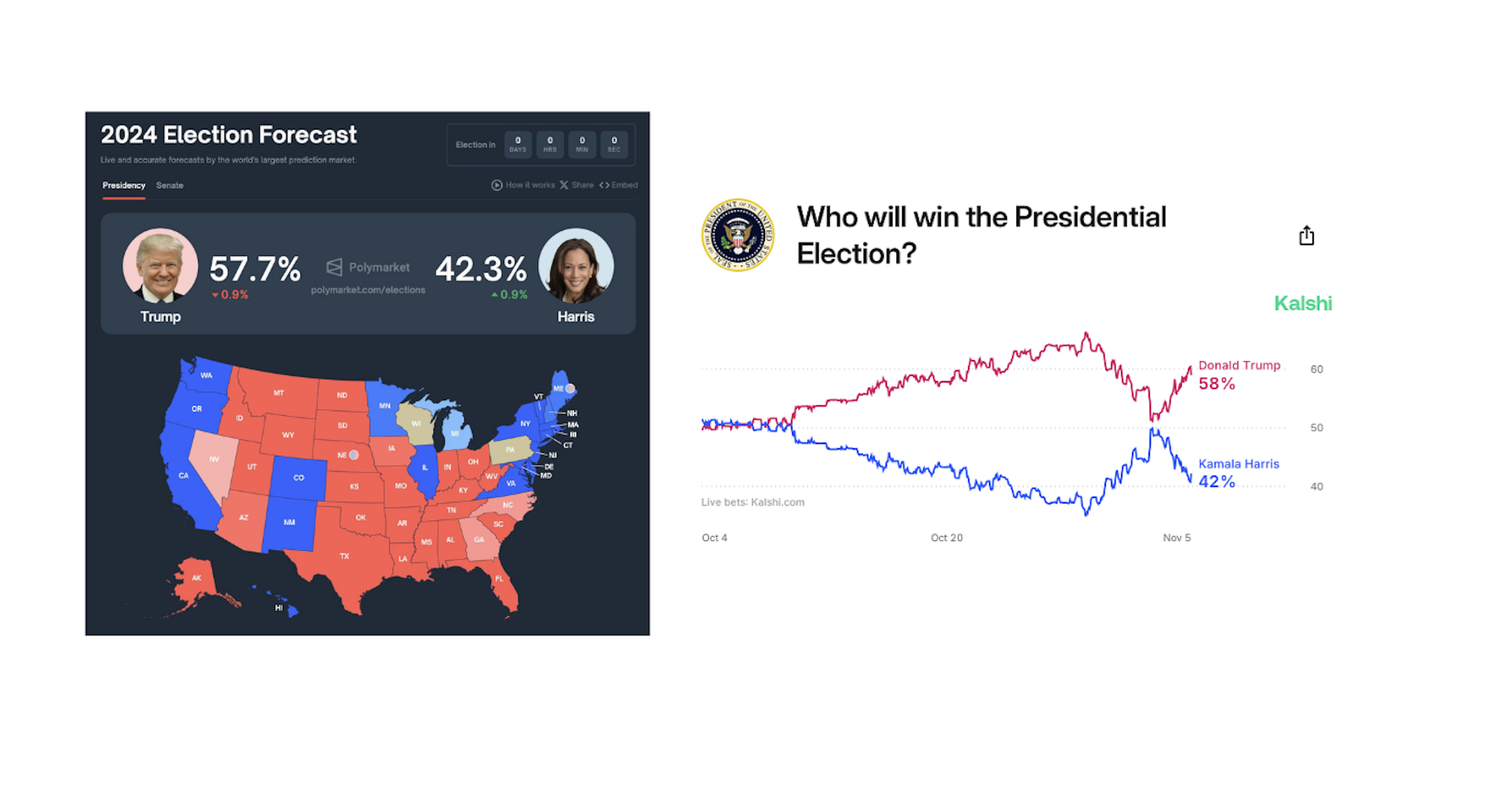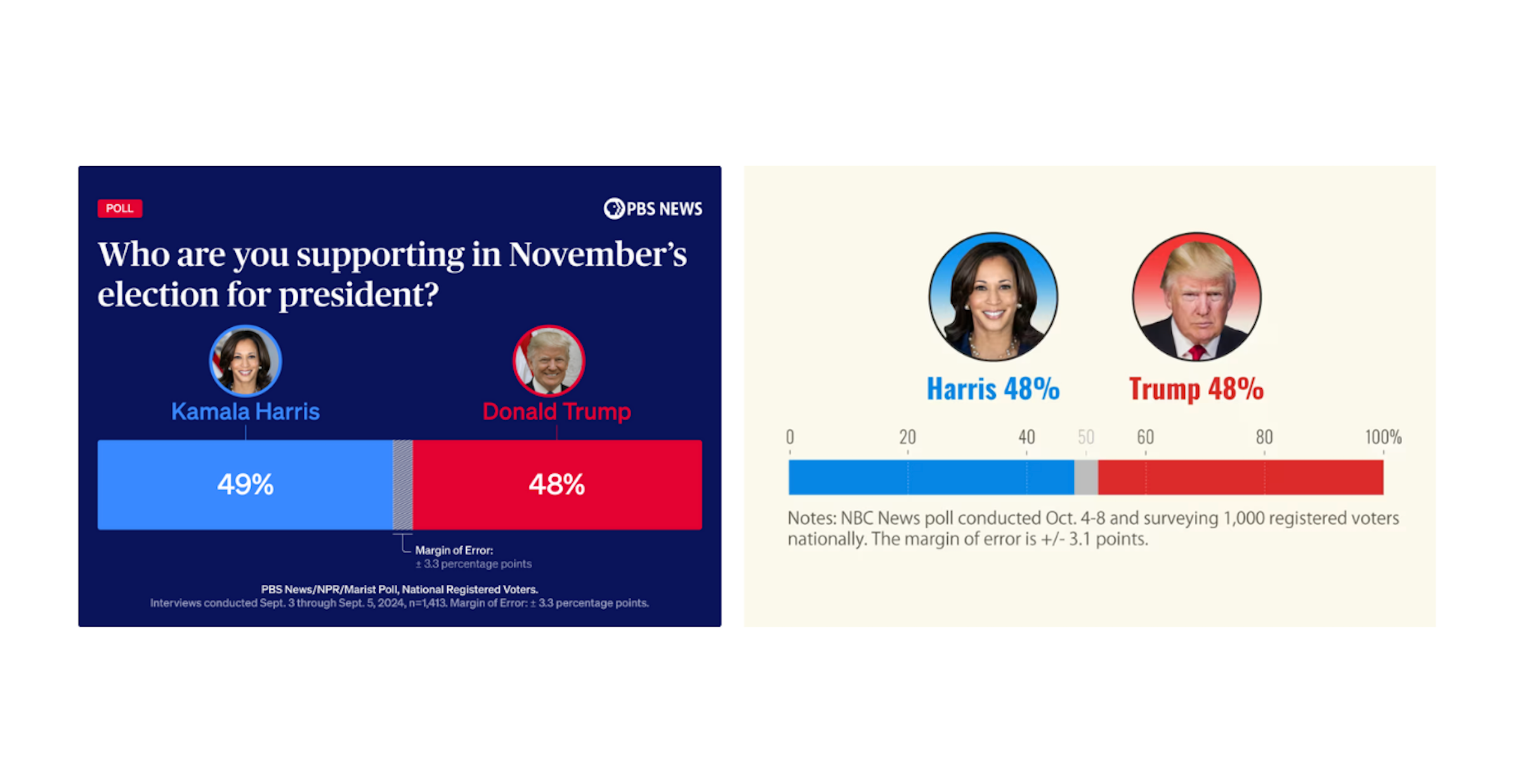Betting Markets: A Quiet Revolution in Political Forecasting
In the lead-up to the 2024 election, a quiet revolution began in political forecasting. Traditional polls, long seen as the authoritative source for predicting outcomes, now faced competition from betting exchanges like Polymarket and Kalshi, where users place real money on predictions of election results. Unlike conventional polls, which often suggested a steady race and strong numbers for Kamala Harris in key battleground states like Iowa, these betting markets consistently showed a higher probability for Trump, dynamically adjusting as election events unfolded. While polls take days to gather, analyze, and release data, betting exchanges offer fast, real-time updates, responding instantly to shifts in sentiment and news.
A betting exchange works like a stock market for predictions:participants bet against one another, with odds set by market activity rather than a central source.
For example when Trump gained support on Polymarket, his odds adjusted to reflect that surge. This setup provides a live, crowd-sourced pulse on public sentiment, continuously refreshed as events unfold. By contrast, traditional polls rely on fixed samples, which can miss rapid shifts or late-breaking changes in voter opinion.
This real-time adaptability gives betting markets a unique accuracy advantage, reacting instantly to events like the 2024 debates. While polls often lag due to data processing, betting markets capture sentiment shifts quickly, with participants aligning their predictions with reality as they stake money on them.

As betting exchanges gained traction, they also sparked skepticism.
When Polymarket and Kalshi showed strong odds for Trump, many turned to traditional polling for validation, trusting established methodologies. Social media was alive with debates about this “trust gap” between traditional polls and betting exchanges, with some dismissing betting platforms as speculative. Critics questioned the legitimacy of betting markets in politics, arguing they might be skewed by external influences, while defenders saw them as more accountable, with participants financially invested in being right. It became clear that betting markets were reshaping how people think about accuracy and reliability in forecasting.
Betting exchanges symbolize more than just a new method for predicting outcomes; they mark a shift from traditional media toward dynamic, data-driven platforms.
For decades, polls were the core of election coverage, shaping narratives. But betting markets, like social media’s disruption of traditional news, offer a decentralized, democratized alternative. Just as social media puts information in the hands of the public, betting markets enable “citizen forecasters” to shape market sentiment in real time, creating a fluid and responsive prediction model that feels closer to the pulse of events.
As the election approached, platforms like Polymarket and Kalshi captured sentiment shifts that traditional polls often missed.
While polls showed a steady lead for Harris, betting exchanges offered greater volatility, sometimes giving Trump higher odds as events developed. This live adaptability—where odds shifted instantly during debates or campaign announcements—highlighted betting markets’ potential to capture evolving voter sentiment with greater precision than static polling snapshots.

Election night proved betting markets’ accuracy, with Trump winning by a landslide—a result that platforms like Polymarket had been indicating with odds as high as 75% in his favor. While traditional polls suggested a closer race, betting markets had adjusted to late sentiment shifts, demonstrating their ability to integrate new information swiftly. Unlike polls, which often lag due to sampling delays, betting markets are constantly active. The financial stakes involved incentivize participants to make accurate predictions, creating a data source rooted in real-time feedback and commitment.
Betting markets represent a new era in political forecasting.
By decentralizing insights and shaping predictions through real-time feedback, these platforms offer a fast, responsive view of political landscapes that traditional polls often miss. As this model gains traction, betting markets could redefine political forecasting, positioning themselves as an agile and essential complement to conventional polling in the age of new media.
